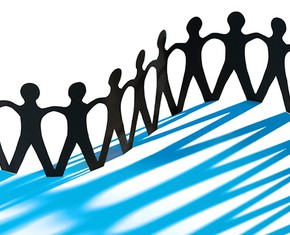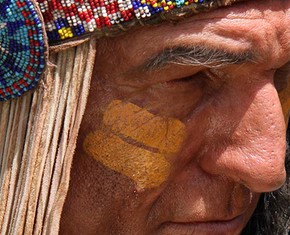The views expressed in our content reflect individual perspectives and do not represent the authoritative views of the Baha'i Faith.
The foundational principle of the elimination of all forms of prejudice holds a central place in the Baha’i Faith. Abdu’l-Baha, in a speech he gave in Montreal in 1912, explained:
According to the teachings of Baha’u’llah all religious, racial, patriotic and political prejudice must be abandoned, for these are the destroyers of the real foundation of humanity. … All prejudices are against the will and plan of God.
This Baha’i principle of the oneness of humanity and the elimination of all bias and prejudice has gradually spread into the fabric of modern society, including its justice systems.
The Judicial Council of California conducted the largest study in the history of the U.S. justice system on gender bias, and the success of that effort enabled us to propose a comparable study on race and ethnic bias in the justice system.
RELATED: How to Make Justice More Just
In California school-age children speak over 250 different languages – as the world’s most cosmopolitan place, Californians have an important duty to make sure their justice systems are free of prejudice.
In 1974-75, I was responsible for conducting a study on the language needs of the non-English speaking populations in the justice system in California. This study included holding public hearings across the state in six different cities and regions. The study documented the many and varied difficulties being faced by this disparate and diverse population in every phase of the justice system. The study led to the adoption of a comprehensive interpreter program for all justice agencies. Subsequently, the U. S. Congress adopted many of the provisions of that California law for federal courts.
The traditional focus of such a study would be to look for all of the inadequacies and injustices represented in the justice system. Alternatively, we tried to instill in the appointed Commission the need to also look for those examples where people of diverse ethnic and racial backgrounds were actually cooperating and working together. This approach of looking for the positive, we have found, has the beneficial effect of reaffirming those examples that demonstrate the effectiveness and qualitative difference in human interactions.
In my experience change comes more from the discovery of new patterns of interaction than citing the negative patterns in the old interactions.
The distinctive nature of the Baha’i approach – which prioritizes reducing conflict and contests for power by focusing on the universal moral and spiritual principles established by founders of the Baha’i Faith – encourages new patterns of human interaction.
As an example, the National Spiritual Assembly of the Baha’is of the United States pioneered a study of race. The approach of the study was to investigate and identify patterns of collaboration and collective effort between and among individuals and groups of different races and religions. This strategy was stimulated by the research that found many thousands of articles on racism – but very few on race amity, cooperation, and fellowship.
The National Spiritual Assembly applied this principle, enunciated by Abdu’l-Baha in J.E. Esslemont’s book Baha’u’llah and the New Era: “If a man has ten good qualities and one bad one, to look at the ten and forget the one; and if a man has ten bad qualities and one good one, to look at the one and forget the ten.”
Rather than focusing on the plentiful evidences of racism, the Assembly looked for examples that could show a positive pathway to the future. The effort, titled Models of Race Unity, produced overwhelming results.
RELATED: Over 90,000 Black Women and Girls Are Missing and Forgotten
Working with the Human Rights Commission of Chicago, we were able to document hundreds of examples of communities of vastly different backgrounds joining together to work for a better world. Over 50 Baha’i localities across the U.S conducted similar efforts, placing the Baha’i community in the forefront of promoting race amity in the United States. This effort was met with intense skepticism from university scholars and others, who were and still are heavily invested in a singular focus on racism.
Coming out of this effort the creation of the National Center for Race Amity occurred, an initiative sponsored by a Baha’i.
Using the experience of Models of Unity, I proposed to California’s Judicial Council the creation of this above-mentioned Commission, which operated for 10 years and made enormous contributions in the areas of judicial and staff education, modifications in laws, and awareness training for all levels of the justice system. In the words of retired Justice of the California Supreme Court Ming Chinn, who served for many years on the Commission, it was the most rewarding experience of his career.
















Comments
Sign in or create an account
Continue with Googleor